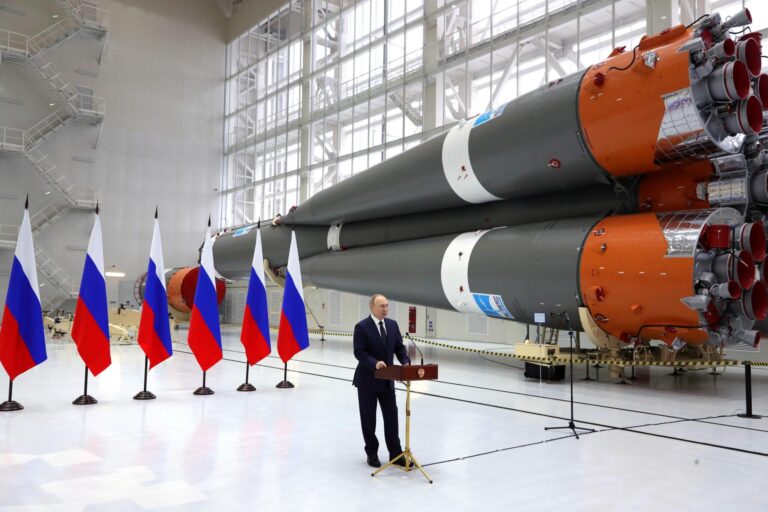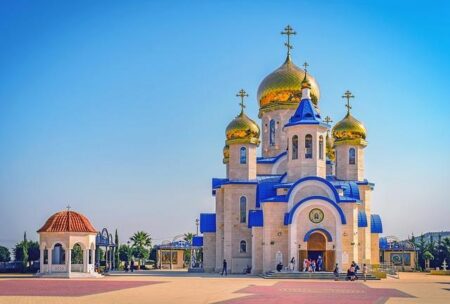Russia has acknowledged that it continued the development of nuclear missile technology during a supposed moratorium on the deployment of new nuclear weapons, according to a report by Reuters. The revelation raises concerns about the country’s commitment to arms control agreements amid escalating tensions with the West. This development underscores ongoing challenges in global nuclear nonproliferation efforts and casts uncertainty over future diplomatic negotiations.
Russia Confirms Ongoing Nuclear Missile Development Despite Deployment Moratorium
In a recent disclosure, Russian officials have confirmed that the country has actively pursued the development of new nuclear missile systems despite adhering to a self-imposed moratorium on the deployment of such weapons. This strategic move underscores Moscow’s commitment to advancing its military capabilities while publicly maintaining restraint in terms of operational positioning. Defense analysts suggest this dual approach allows Russia to modernize its arsenal without escalating direct tensions linked to visible missile deployments.
The development initiative reportedly focuses on enhancing missile range, accuracy, and survivability. Among the key advancements are improvements in:
- Hypersonic glide vehicles designed to evade missile defenses.
- Solid-fuel propulsion technologies for rapid launch readiness.
- Advanced targeting systems allowing for precise strikes.
| Missile System | Development Focus | Status |
|---|---|---|
| RS-28 Sarmat | Increased payload capacity | Testing phase |
| Zircon Hypersonic | Speed and maneuverability | Limited deployment |
| Kinzhal Air-launched | Precision targeting | Development ongoing |
Implications for Global Security and Nuclear Arms Control Efforts
The revelation that Russia continued advancing its nuclear missile technology during a declared moratorium severely complicates the landscape of international arms control. This approach not only undermines trust among global powers but also raises urgent questions about the efficacy of existing non-proliferation agreements. As nations observe Moscow’s commitment to enhancing its strategic arsenal despite formal pauses, concerns mount over a potential acceleration of an arms race, threatening decades of diplomatic progress.
Key challenges facing global security include:
- Reduced transparency in missile development activities
- Increased mistrust between nuclear-armed states
- Potential erosion of future moratorium agreements and treaties
- Risk of destabilizing regional security dynamics
| Aspect | Potential Impact |
|---|---|
| Arms Control Treaties | Weakening compliance and enforcement |
| Strategic Stability | Heightened risk of miscalculation or accidental escalation |
| Diplomatic Relations | Strained communication channels and reduced cooperation |
Experts Recommend Strengthening International Oversight and Renewal of Disarmament Talks
In light of recent revelations regarding Russia’s continuation of nuclear missile development during a moratorium on deployment, international experts have urged for a robust enhancement of global oversight mechanisms. The current frameworks governing nuclear arms control have shown vulnerabilities, making it imperative to introduce stronger verification processes, transparency measures, and multilateral cooperation. This approach aims to prevent clandestine advancements and ensure mutual trust among nuclear states, thereby reducing the risks of escalation in geopolitical tensions.
Additionally, there is a growing consensus among policymakers and analysts that existing disarmament dialogues require urgent revitalization. Without renewed and constructive talks, the momentum toward global nuclear reduction risks stagnation. Key recommendations include:
- Establishing a new international watchdog with enhanced inspection powers
- Regular public reporting on nuclear developments to promote transparency
- Inclusive negotiations incorporating emerging nuclear powers and regional stakeholders
- Strengthening existing treaties such as New START and exploring fresh arms control agreements
| Action | Expected Outcome | Timeline |
|---|---|---|
| New Oversight Body Creation | Higher Compliance Verification | Within 1 Year |
| Resumption of Disarmament Talks | Trust Building and Reduction | 6-12 Months |
| Transparency Initiatives | Public Accountability | Ongoing |
Closing Remarks
As Russia confirms ongoing development of nuclear missiles despite a declared moratorium on their deployment, the move raises questions about the future of global arms control and strategic stability. International observers and governments will be closely monitoring Moscow’s actions as tensions persist amid evolving security dynamics. The implications of Russia’s continued weapons development underscore the challenges facing diplomatic efforts to curb the proliferation of nuclear arms worldwide.




